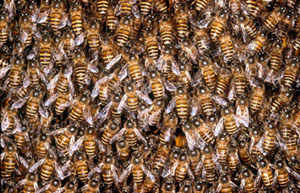Abstract
Jane McGonigal will discuss her firsthand experiences designing, directing and performing in the supergaming genre. She proposes that massively scaling digital communities is not only possible, but that scaling leads to the emergence of important changes in our understanding of the network, of the possibility of digital community, and indeed of "community" itself.
The massively-scaled ludic worldview is a design imperative for social software engineers, game developers, network designers and all the other architects of digital community: more, more, more play and players.
Why more? "The more the better" - players experience phenomenological pleasure in being part of a much larger, co-present whole. "More is different" - unexpected things happen when you scale up. "More is needed" - to become exponentially more powerful, to pass the coveted threshold to "super," you need to connect as many individual parts as possible. These three tenets comprise the more, more, massively more connectivity she dreams of for playful network communities in the today's new media landscape. Massively more is a vision of digital social networks designed and deployed to produce more pleasure, more emergence, and more superpower through a massive scaling of gamer communities.
This vision flies in the face of one of social software's favorite conventional wisdoms: digital communities don't scale well. But recent San Francisco-based cluster of pervasive play and performance practices - the urban superhero adventure the Go Game, flash mobs, flash mob supercomputing, and the flash mob gaming missions in the massively-multiplayer alternate reality game I Love Bees � suggest otherwise. Together, these experiments in massively-scaled, public collaboration comprise the avant-garde of an emerging constellation of network practices that are both ludic, or game-like, and spectacular - that is, intended to generate an audience. She calls this tactical combination of network-based play and spectacle supergaming.
Bio
Jane McGonigal is a game designer and games researcher, specializing in massively collaborative games played in everyday spaces. She is a Ph.D. candidate in performance studies at UC Berkeley, researching collective play and practicing design for collaboration as a member of the Berkeley Institute of Design and the Alpha Lab for Industrial Engineering and Operations Research. She is also a creative designer for 42 Entertainment, where she most recently served as community lead and puppetmaster for the Halo 2 alternate reality game I Love Bees, which won the 2005 International Game Developers Association's Innovation Award and was named by the New York Times' "Year in Words" one of the most influential and touchstone catchphrases of 2004. Her previous pervasive gaming and collaborative play projects include Place Storming (Intel), the Place Storming/Wi-Fi Bedouin Mash-up (commissioned for the Los Angeles Museum of Contemporary Art), The Go Game (Wink Back, Inc.), Organum (BID lab), and Tele-Twister (Alpha Lab). Jane has taught game design as the San Francisco Art Institute and game culture at UC Berkeley, and is a member of the International Academy of Digital Arts and Sciences. She is currently working with the MacArthur Foundation on an educational gaming initiative and is on the Interactive City programming committee for ISEA 2006.
-- As of 3/14/04
